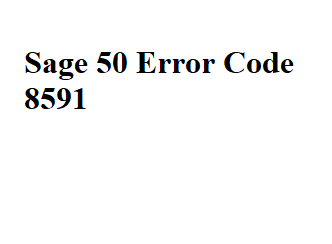Council Tax arrears refers to unpaid Council Tax payments that are overdue. If a person fails to pay their Council Tax on time, they will accumulate arrears and may be subject to penalties and additional charges. The local council may take legal action to collect the unpaid amount, including garnishing wages or benefits, or even taking possession of the person’s property. It is important to contact the local council as soon as possible if you are having difficulty paying your Council Tax, as they may be able to offer payment plans or other assistance.
Council Tax Debt is a type of debt that arises when an individual or household fails to pay their Council Tax bill. Council Tax is a local tax that is imposed on the residents of a property and is used to fund local government services. It is based on the value of the property and the number of people living there. The amount of Council Tax that is due depends on the property’s valuation band, which is determined by the government.
Council Tax is typically due in monthly instalments, and failure to make payments can result in penalties and interest being added to the outstanding balance. If a person or household does not pay their Council Tax bill, they may incur penalties and interest, and eventually, the debt may be passed on to a collection agency for further action.
Penalties for failing to pay Council Tax can include additional charges on top of the unpaid bill, such as court costs and bailiff fees. The local council may also take legal action to recover the debt, including applying for a liability order from a magistrates’ court. This allows the council to take further action to recover the debt, such as attaching the debt to the person’s earnings or bank account.
If the debt is not paid, the council may also take action to recover the debt through enforcement action, such as appointing a bailiff to collect the debt or taking possession of the property. This can lead to the individual losing their home and significant financial burden.
It is important for individuals to keep up with their Council Tax payments to avoid accumulating debt and potential legal action. If a person is having difficulty paying their Council Tax, they should contact their local council as soon as possible to discuss options for a payment plan or other support.
There are also certain exceptions and reductions that may be available for certain individuals, such as those on a low income or in receipt of certain benefits. These include discounts for single occupancy, or council tax reductions for disabled people. It is important to be aware of these options and apply for them if they are applicable.
In some cases, people may be able to challenge the amount of Council Tax they are being asked to pay. This can include appealing against the valuation band of their property or challenging a decision on a discount or exemption.
It is also important to note that Council Tax debt is different from other types of debt, such as credit card debt or personal loans, in that it is a statutory debt. This means that it is secured against the property and failure to pay can result in legal action and ultimately, loss of the property.
Council Tax is a tax that is imposed on residents of the United Kingdom for the upkeep of local services such as garbage collection, street lighting, and police and fire services. If an individual is unable to pay their Council Tax bill, they may accrue debt. Here are some ways to deal with Council Tax debt:
- Contact the local council: If you are unable to pay your Council Tax bill, it is important to contact the local council as soon as possible to discuss your options. They may be able to offer a payment plan or a reduction in the amount you owe.
- Apply for Council Tax Reduction: If you are on a low income, you may be eligible for Council Tax Reduction, which can help to reduce the amount of Council Tax you owe.
- Seek advice from a consultant:Acme Credit Consultant debt management can offer free advice and assistance with dealing with Council Tax arrears.
- Consider a debt management plan: A debt management plan allows you to make one affordable monthly payment to your creditors, including your local council.
- Negotiate with your creditors: It may be possible to negotiate with your creditors to come up with a payment plan that works for both parties.
- Consider bankruptcy or an IVA (Individual Voluntary Arrangement): If you are unable to pay your Council Tax arrears and your other debts, you may want to consider bankruptcy or an IVA as a last resort.
- Prioritize your payment: If you are unable to pay all of your Council Tax arrears, try to prioritize payments for the current year’s bill to avoid additional penalties and interest charges.
- Keep records: Keep records of all correspondence and payments made to the council and any other creditors to ensure that you are aware of your financial situation and can prove that you have made an effort to pay off the arrears.
- Avoid court action: The council may take court action if you do not pay your arrears, to recover the money. This can result in a County Court Judgement (CCJ) which will affect your credit rating, and a warrant of execution, bailiff action, and even imprisonment in some cases. So, it’s best to act quickly and seek help as soon as possible to avoid court action.
- Seek legal advice: If you are facing court action, it is important to seek legal advice from a solicitor or other legal professional. They can help you understand the legal process and advise you on your options.
It’s essential to remember that Council Tax arrears can have serious consequences if left unresolved, so it’s important to act quickly and seek help as soon as possible. It’s also important to be honest with yourself about your ability to pay and to approach your local council as soon as you know you are going to struggle to pay your bill.




![Different Filter Press machine [Definition, Components, Types & Comparison]](https://zoombazi.com/wp-content/uploads/2022/03/What-is-a-Filter-Press-and-How-Does-It-Work.png)
